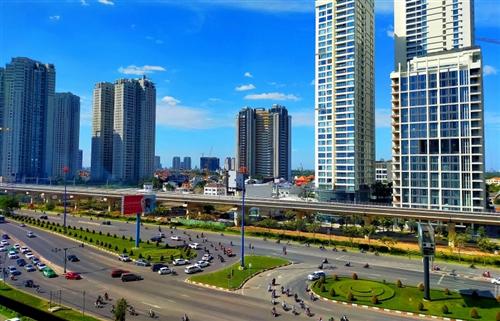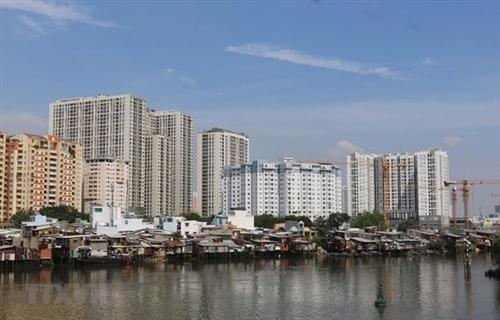Retail property landlords and tenants facing predicament
Retail property landlords and tenants facing predicament
Retail property landlords and tenants must prepare to navigate a period of elevated risks to cash flow and increased operational costs arising from a slump in consumer demand and disruption to supply chains.

Some retailers are seeking rent holidays from landlords during the pandemic period, Photo: Le Toan
|
According to Trang Bui, head of markets at JLL Vietnam, retail property owners are suffering heavy losses due to the ongoing coronavirus outbreak.
Foot traffic in many malls and retail centres in Ho Chi Minh City declined by 80 per cent during February and March compared to the same period last year, as many mall operators have closed their retail spaces.
A few international brands have postponed their launch plans this year in Vietnam, particularly in Ho Chi Minh City, due to the impact of the pandemic.
Nearly 280,000 square metres of gross floor area (GFA) and 180,000sq.m of GFA of retail space scheduled to open in 2020 in Ho Chi Minh City and Hanoi respectively have been affected, adding to over 2.3 million sq.m GFA of current stock. Challenges may remain in the sector in the second quarter of 2020 following the ongoing nationwide social distancing policy which came into effect on April 1.
In order to assist tenants during the crisis, many Hanoi landlords have offered various temporary supportive measures. The most direct solution is to reduce rents by 10-50 per cent depending on the sector, with the level of reduction varying from each landlord to another. Other indirect measures include promotions and advertising packages to attract customers.
Some landlords have issued rent discounts for February and March, ranging from 10-30 per cent, with top priority given to general retail groups like food and beverages, and entertainment.
Other landlords have considered reducing rent by 10-50 per cent, depending on the performance of each tenant. One landlord in particular offered a rent deferment of 30 per cent from March to later in the year when the situation is expected to improve.
Vincom Retail JSC, the retail arm of Vingroup, in March announced that it would be reserving VND300 billion ($13 million) to support tenants in its 79 retail centres nationwide who are impacted by the pandemic. The majority of the fund will be used to subsidise rental charges for tenants and offer discounts and vouchers for customers who visit Vincom retail centres.
Meanwhile, Hung Thinh Corporation is the second major landlord to support tenants and customers by reducing rent. The company plans to cut rates by up to 40 per cent at a range of the company’s retail units in Moonlight Plaza and Saigon Mia in Ho Chi Minh City, and Vung Tau Melody in Vung Tau City.
According to Leon Cheneval, an expert from the Real Estate Data Network, the relationship between landlord and tenant is now at a crossroads. “Rent is of course a main cost. The landlord argues they have a valid lease and tenants must pay. This problem is being approached differently by various landlords, but it’s been reported that some retail centres are remaining steadfast and not open to renegotiating or providing a remedy for tenants,” said Cheneval.
Landlords in general are currently and pro-actively talking to tenants and offering some form of rent relief.
“Rent holidays or relief has to be an immediate solution as we see landlords standing their ground on payment,” continued Cheneval. “This is not ideal as the tenant’s only other option is to rescind or break the lease and then vacancies are likely to be prolonged. What is needed right now is dialogue, from agent to tenant and agent to landlord.”
Meanwhile JLL Vietnam’s Trang Bui stated that domestic retail spending may suffer a temporary decline from consumer reluctance or inability to visit destinations where infection risks are elevated.
Non-essential goods and leisure services will be hit harder than perishables and essential dry goods, which have seen increased demand as consumers stockpile to avoid personal shortages. As the outbreak spreads, this behaviour can be expected to emerge in new locations.
Regarding where money will be spent by consumers once the outbreak crisis is over, Bui predicted that luxury items would be hit the hardest as consumers tighten their purse strings. “We’re going back to shopping for essential daily needs,” she said.
Liquidity in retail is a big issue, meaning that the sector most at risk might be small- to medium-sized family-owned retailers. The average liquidity amongst these retailers is a couple of weeks, not several months.
If transmission of the virus slows by mid-year, the important fourth-quarter seasonal sales period will be minimally affected, helping to lessen the full-year financial impact.
Nonetheless, Lunar New Year sales have already been impacted and months of inactivity are unlikely to be covered. Significant downside risks exist across all areas if the spread of the virus continues throughout the year.
Protecting cash flow remains crucial for all retailers, especially for operators with thin profit margins, including weaker retailers and non-food value operators, Bui from JLL added. Those hit hardest may seek temporary rent relief from landlords. If liquidity and capital constraints arise, new store openings will slow and refurbishments will be delayed.




























